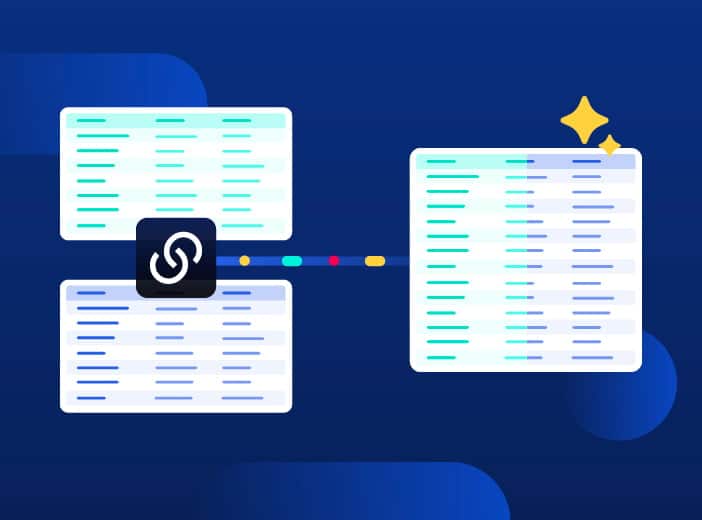Glossary
Open government
Open government increases transparency, integrity, accountability, and stakeholder participation in government, benefiting citizens and public bodies.
What is open government?
Open government is the opening up of government policies, processes and activities to public scrutiny. This increases transparency and accountability and therefore boosts engagement and involvement from citizens. It can cover any level of government, from national/federal institutions through state agencies to local and municipal councils.
The Organisation for Economic Co-operation and Development defines open government as. “a culture of governance based on innovative and sustainable public policies and practices inspired by the principles of transparency, accountability, and participation that fosters democracy and inclusive growth.”
The internet and digitization have made open government simpler and more straightforward to deliver better access to, and publishing of, data.
What are the components of an open government strategy?
Successful open government requires:
- Culture change: Moving from a closed culture where public officials operate without direct public scrutiny to an open dialogue between government and citizens. There is a presumption of openness. This is a major change in mindset for many government organizations where staff may be used to focusing internally on their work and processes, without interacting with citizens.
- Process change: How activities are carried out must also change. Open government processes are designed to be transparent and accountable, with clear ways of working that are publicized and followed.
- Open data: Proactively providing accurate, relevant data in easily understood forms and formats is central to open government, both to monitor current performance and deliver transparency around future plans. This data should be complete, available to all, and trustworthy.
- Open information: As well as published open data, government bodies need to respond reactively to questions from citizens in a timely manner, guaranteeing freedom of information.
What are the principles of open government data?
Data is central to delivering open government. In 2007 a group of open government advocates agreed and published 8 principles around open government data. These state that data must be:
- Complete: All public data is made available, subject to privacy/security regulations.
- Primary: Data is collected at source, and is openly available in an unmodified form.
- Timely: Data is published as soon as possible after collection.
- Accessible: Data must be available to all users, in a wide variety of formats
- Machine processable: Data formats must be automatically readable by machines, as well as humans.
- Non-discriminatory: Data is available to all, without requiring registration.
- Non-proprietary: Data is available in formats over which no entity has exclusive control.
- License-free: Data is made available without any restrictions around copyright that would limit re-use.
What are the benefits of open government?
Open government delivers benefits to both citizens and government itself.
Citizens – greater transparency and engagement
- Increases understanding of what government agencies are providing for them and where to address any queries.
- Increases awareness of how their money is being spent by government bodies.
- Increases stakeholder engagement and action, through informed understanding of public performance and a two-way dialogue.
- Enables citizens to make better and more informed decisions around government activities, services, and performance.
Government – increased efficiency, openness and innovation
- Increased accountability drives performance improvements around efficiency and operations as well as ensuring public integrity and guarding against corruption.
- Increases in transparency drive greater trust in government and elected officials, reinforcing faith in democracy and growing engagement and even election turnout.
- Increases innovation and growth by generating new ideas and services internally and externally, from citizens, businesses and not-for-profit organizations.
What are the challenges to open government?
Many national, regional and local governments have made strong public commitments to open government, often backed up by legislation. However, successful implementation requires overcoming six obstacles:
- Multiple definitions: As a broad term, open government is defined and implemented differently in different countries. While this itself is not an issue, when multiple definitions are used within a country or region, confusion can prevent consistent, successful implementation.
- Joined-up programs: Open government policies need to span all tiers of government, with every agency working together. Scattered initiatives do not deliver the benefits of adopting a comprehensive, nation-wide or state-wide strategy.
- Changing culture: Becoming open requires major cultural change, particularly in public sector organizations that may be used to working in a closed, internally-focused way. Making this transformation requires extensive training, understanding, and strong leadership.
- Closed technology: Previously closed data has to be made open and available to all, in formats that democratize data and ensure it is understandable. This requires investment in the right technology platform.
- A lack of dialogue: Simply creating an open government data portal and adding raw datasets to it will not involve or excite citizens or other stakeholders. Instead, public sector organizations need to engage in dialogue with citizens. They must understand their concerns and needs around data and then make it available in the right formats through a range of channels and data visualizations. These can include websites, apps, dashboards and data stories. This drives increased participation in the democratic process.
- No monitoring or evaluation: Open government is an ongoing process. Not only do public bodies need to audit performance to ensure they are complying with open government legislation, but they also need to use monitoring and feedback to identify areas for improvement on a continual basis.
Learn more

Blog
Opendatasoft harnesses agentic AI to connect AI models to real-world data, driving greater business impact
What is agentic AI and how does it help increase data consumption? Our Q&A blog explains the current state of AI, and how Opendatasoft is innovating to drive forward its impact for customers.

Blog
Opendatasoft boosts data enrichment, even when using the largest reference sources
Enriching your data is a key step in creating relevant insights and analysis that drives value. However, when it comes to using massive reference sources such as national company databases, detailed weather data or geographic/administrative boundary datato enrich your data, technical limitations often become a challenge.

Blog
Successfully scaling data products – best practice from McKinsey
Data products are central to increasing data consumption across the organization. But how can you ensure your data product program delivers lasting value? We explore the latest best practice from McKinsey, designed to scale data product creation and usage.
